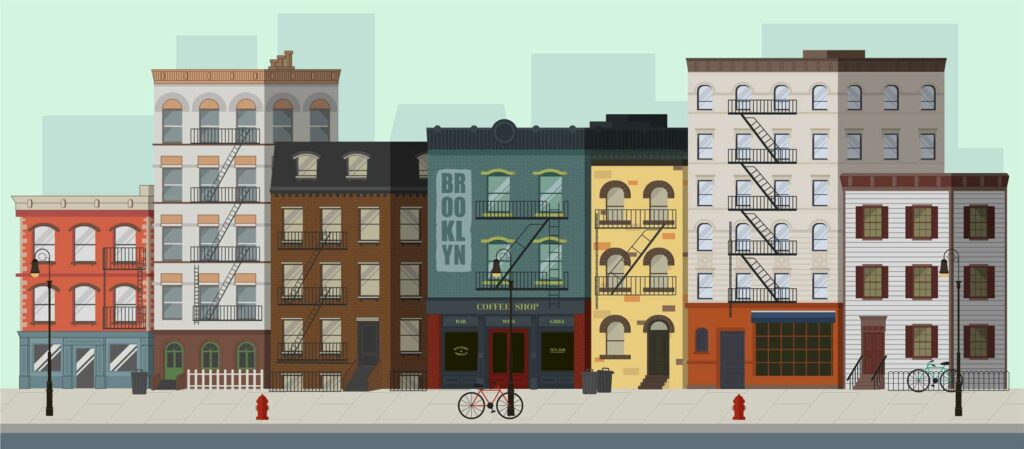
Housing Stability andRent Act of 2019
How the new rent laws will slam NYC’s housing market
WRITTEN BY EUGENE REISMAN MANAGING MEMBER AND COO OF NOVICK EDELSTEIN POMERANTZ P.C.
On June 14, 2019 the NYS legislature, not truly understanding the ramifications, passed onerous amendments to the Emergency Tenant Protection Act, the Rent Stabilization Law, the Real Property Actions and Proceedings law, the Real Property Law and the General Obligations Law. The stated intent was to protect tenants. The result is yet to be determined although it is clear that the unstated intent was to injure property owners.
Among other things, the new law prevents real property owners from collecting anything but basic rent in a nonpayment summary eviction proceeding. In other words, a summary proceeding cannot be maintained for legitimate charges such as air conditioners and electricity. This, despite the fact that the law provides for those charges. By way of example, a tenant’s basic rent might be $1,800 monthly, but that tenant may also be responsible to pay $10.00 a month for air conditioners. If the tenant fails to pay its obligation for two months, then the tenant owes $3,620.00. The owner can only start a summary proceeding to collect the basic rent of $3,600.00. The owner is relegated to a plenary action for the other $20.00. As a practical matter that now makes the $20.00 uncollectible. Is a property owner going to incur the time and legal costs to collect the $20.00?
The new law also delays the processing of eviction cases. It now requires a reminder notice to a tenant when the rent has not been received and it is more than 5 days from its due date. Failure to send that notice by certified mail is a defense to a later nonpayment eviction proceeding. Previously, before commencing a case for rent, the tenant was to be served with a 3-day demand notice- a notice that threatens eviction if the rent is not paid within 3 days of receipt of the notice. As the title implies, it allowed the tenant 3 days to pay before a case could be commenced. The new law now requires a 14-day demand (plus the new notice that the rent is more than 5 days late). So, what has this accomplished? It allows a tenant an extra 19 days to pay the rent instead of an extra 3. Why pay on time? There is no ramification to the tenant who pays late.
For Rent Stabilized apartments, the new law reduces the amounts that can be collected for apartment improvements. Under the prior law an owner could make apartment improvements to a vacant apartment and then increase the rent by 1/40th or 1/60th of the cost of the improvement, depending on the number of apartments in the building. In addition, those rent increases were permanent. Under the new protocol those increases will be collectible for 30 years only and the new allowance is 1/168 or 1/180 depending on the size of the building. By way of example, spend $10,000.00 and over the following 30 years you get to collect a total of $20,000.00 and then the increase ends. Would you invest $10,000 to get a return of $10,000 over 30 years plus the return of your original $10,000 investment? I’d rather buy a good dividend paying stock. Similar limits and restrictions have been made with respect to Major Capital Improvements (building-wide improvements), such as new elevators, upgraded electrical wiring, new heating systems. Most owners that I have spoken to feel the same way. They have stopped making apartment improvements and building improvements but will continue to maintain their properties and keep them repaired. It will be interesting to see the state of the housing stock in few years. One of my clients canceled two elevator installation contracts on the Monday following enactment of the new laws. Small business throughout the metropolitan area are also being affected. Trades people who depended on building improvement work for their livelihoods have lost an untold amount of business. Contractors and skilled workers such as plumbers and carpenters will be among the unemployed.
A quick synopsis of some other noteworthy changes…
• Lessors may not charge more than $20.00 to a prospective tenant for a credit check regardless of the cost to the lessor.
• Lessors may not consider the prior litigation history of a prospective tenant. If the Lessor obtains that information and then rejects the tenant, it is presumed that the rejection was based on the litigation history. In such event the lessor is subject to a fine of up to $1,000.00.
• In NYC tenants who were the subject of a nonpayment proceeding were required to file their answer in Court within 5 days. The new law allows an answer to be filed within 14 days. The court date is always set subsequent to the date the answer if filed. It is another opportunity to delay the case.
• Once a case does reach Court, a tenant may request an adjournment as of right. The Court is then mandated to adjourn it not less than 14 days. The old rule allowed the Court to adjourn the matter not more than 10 days.
Who exactly is served by this new regime? Where are the benefits to our society as a whole? Does this improve the business environment in NY or diminish it?
In the long run, tenants will not benefit from the new legislation. The quality of the housing stock is bound to decline as owners no longer have incentive to improve their properties. Foreclosures are likely to increase as the values of many buildings fall below the amount financed, negatively impacting the lenders, primarily banks. The number and values of sales of multi-family housing in NYC have already declined and will likely continue to decline as it seems potential buyers have lost interest. The City will lose millions of dollars in transfer taxes. As building values decline, we can also anticipate a decline in real estate tax revenues to the various municipalities. The unintended consequences of these poorly conceived laws will manifest themselves for years to come.











